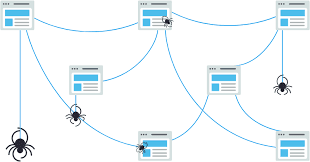If you’ve ever wondered how to get your website higher up in search engine rankings, then this post is for you! Search Engine Optimization (SEO) can seem like a complicated and daunting task, but it doesn’t have to be.
In this blog post, we will explain the basics of SEO in easy-to-follow steps so that even the newest web entrepreneurs can find success.
From keyword research and content optimization to meta data and link building strategies, we’ll cover everything you need to know about optimizing your site for better search engine results—so let’s get started!
What is SEO?
SEO, or Search Engine Optimization, is a digital marketing technique that helps businesses improve their online visibility. SEO allows businesses to reach their target audience quickly and effectively through the strategic use of targeted keywords and phrases.
SEO is important in helping businesses increase website traffic, and it can also encourage visitors to stay longer on the websites they visit.
Ultimately, SEO can help businesses compete more easily in an increasingly crowded online marketplace by improving their rankings among search results, resulting in increased brand awareness and customer loyalty.
Whether you’re a small business trying to get your foot in the door or an established enterprise aiming for more customers, effective SEO can be instrumental to your success.
How do search engines work?
Search engines are incredibly complicated systems that are designed to find and index websites. A vast array of tools, algorithms, and other technologies are used in order for search engines to deliver accurate and relevant results. Understanding how these components work together is key to optimizing a website for search engine visibility.

Every time users input a query into a search engine, the engine searches through its index of web pages in order to present accurate answers from thousands of possible sources.
Search engine results pages are designed so the most relevant results appear at the top, helping web users quickly find what they’re looking for with minimal effort. Each page within each website must be ‘crawled’ by a spider-like service in order for it to become part of the indexed database.
With every subsequent crawl, more content can be added and indexed accordingly, allowing the search engine to determine which content is most relevant according to user queries.
Analyzing this data helps search engines learn over time, continually improving their understanding of language and improving their accuracy as new websites come online.
1. Create Relevant and Useful Content
Creating relevant and useful content for your website is one of the most effective ways to optimize your site for better search rankings. Google algorithms place a lot of value on content that is both relevant and useful to readers, making it a priority when displaying search results.
In order to rank higher in search engine results pages (SERPs), it’s important to create content that provides valuable information and helps people solve problems or answer questions.

Relevant content should be closely related to the topic or keyword focus of your website.
To ensure relevance, do keyword research to understand what topics are most commonly associated with your target keywords and use those topics as a starting point. You can also use related keywords throughout the text to help bolster relevancy.
Additionally, make sure you’re regularly updating your content with fresh and up-to-date information so that it continually provides value.
In addition to making sure your content is relevant, it’s also important that it’s useful for readers. Good web content should offer solutions to readers’ problems and answer their questions in an easy-to-understand way.
To make sure this happens, create clear headlines so people know exactly what the post is about before they start reading and include quality images, videos, infographics, etc., which will help bring life to the article as well as make it more visually engaging.
Additionally, break up long chunks of text into shorter paragraphs as well as use bullet points when possible; this will make the article easier on the eyes and help quickly convey key messages.
Finally, always strive for accuracy and provide unbiased opinions when possible. If you’re citing facts or resources from other sites or sources, double-check them before publishing them so you know they are accurate; this shows readers that you are trustworthy and knowledgeable in your field.
Furthermore, if you ever encounter user feedback or criticism regarding an article’s accuracy or usefulness address it promptly–this can be a great opportunity to refine existing pieces of content while building trust with users at the same time!
2. Link In and Link Out Wisely
When it comes to SEO, one of the most important tasks is to ensure that your site links with other relevant websites.
This process, known as link building, helps boost your search rankings by providing further proof to search engines that your website is associated with topics that are related to yours. To link in and out wisely, you must be sure to focus on adding high-quality content from authoritative sites, as well as backlinks from reputable sources.

When selecting which websites or pages should be linked in and out of your own website, it’s important to consider relevance first and foremost. The content should be directly related to the topic your website focuses on.
Linking out to irrelevant pages can lead to an increase in bounce rates—which is bad for SEO—so make sure you’re only linking out when it’s necessary and helpful for the reader. Additionally, aim for a mix of do-follow and no-follow links whenever possible; this helps show Google that you are not trying to manipulate rankings or game their system but instead are striving for a natural flow of traffic.
Aside from relevance, another key factor in link building is quality: Make sure all external pages have good authority scores (also known as domain authority).
It’s also best practice to check up on each source before linking it; take some time to read through their content and get familiar with their topics so you know what type of information users will find if they click through.
Finally, make sure you’re actively monitoring all backlinks coming into your website; keep an eye out for any suspicious or low-quality sites that could potentially harm your SEO efforts.
If you find any links that need cleaning up or need removal altogether, work quickly to remove them before they cause any problems.
By following these tips – ensuring only high-quality backlinks with relevant content come into contact with yours – you can help maximize the potential benefit of link building while minimizing any potential risks. So go forth and link in and out wisely!
3. Write Appealing Titles
Having an appealing title is one of the most important aspects of optimizing your website for better search rankings. After all, it’s the first thing potential visitors will see when they come across your site in a search engine.
The title has to grab their attention and urge them to click through to your page. Here are some tips on how you can craft titles that will help boost your SEO and attract more visitors.
First, make sure that the title accurately reflects what your page is about. If the title doesn’t match up with what a user was searching for then they may not have any interest in staying on your page.
This means that you should use relevant keywords throughout your title to give potential readers an idea of what content they can expect when they click through. For example, you could use “How to Optimize Your Website for Better SEO Rankings” as a title rather than something generic like “Website Tips.”
Another way to write appealing titles is by including numbers or phrases such as “Best” or “Top” at the beginning of the title as this makes it more eye-catching and will prompt users to click through.
Decreasing uncertainty by using language that indicates there is helpful information on the page leads potential viewers to believe clicking through won’t be a waste of time and encourages them to take action. Additionally, making sure titles aren’t too long can also have a positive effect on SEO because search engines prefer shorter titles due to their space limitations.
Finally, try using questions in titles as this helps draw people in and encourages them to learn more about the topic being discussed on the page. By asking questions such as “How Do I Optimize My Site?” or “What Is The Best Way To Improve My Search Rankings?” you’re raising curiosity which increases chances of drawing readers in and boosting SEO rankings since questions are often used in searches on Google and other search engines.
Overall, having an attractive title is essential when it comes optimizing websites for better search rankings so make sure yours is engaging enough that users want to click though and learn more about what you have to offer!
4. Match Searchers Intent
Search engine optimization (SEO) is a highly effective tool for businesses to use when attempting to boost their search engine rankings and get more customers. SEO involves optimizing your website content so that it is well-structured, easy to find, and has the right keywords and phrases that people are likely to be searching for.
It can be easy for business owners to overlook the importance of SEO, but understanding how it works and implementing the strategies correctly can have a huge impact on your business’s online visibility.
When it comes to matching searchers intent, there are a few key elements you should consider. Firstly, you need to understand what people are trying to look for when they type in their search terms.
For example, if someone is looking for information about “SEO for Dummies” then you should focus on providing helpful content that answers this query in an easily understandable way. A good way to do this is by including relevant keywords throughout the page, such as “SEO strategies” or “search engine optimization techniques” – this will help the page rank higher whenever those terms are used in a search query.
In addition, you should also make sure that your website is set up correctly with an easily navigable structure and clear titles and headings which make it easy for visitors to find what they’re looking for quickly.
This also helps with SEO as search engines like Google recognize websites that have been designed well – making them appear higher up in their results pages.
It’s also important to ensure that the content you produce is well-written, informative, and engaging – providing real value for the reader rather than just repeating keywords over and over again (known as ‘keyword stuffing’). Including images or videos which relate directly back to the topic can also be an effective way of further improving engagement with readers who are looking for specific information about SEO.
Finally, another great way of increasing traffic from searches related to SEO topics is by creating blog posts or articles that link back to your main website pages or other authoritative sites within your niche – this not only increases views directly from users clicking through from these links but also helps improve your overall ranking authority which will benefit all of your webpages in turn.
In conclusion, matching searchers intent requires a deep understanding of how people use search engines – what queries they type into them and what kind of content they expect when they click on a certain result page.
By taking this into account when designing webpages and creating content tailored towards specific queries (and ensuring correct structure/optimization techniques are being used) businesses can boost their visibility significantly while simultaneously providing valuable resources which answer user questions accurately – allowing them both short-term success in terms of increased traffic and long-term success due to improved ranking authority within their niche market over time.
5. Improve User Experience (UX)
Improving the user experience (UX) is essential for ensuring a successful website. A good UX helps to make sure visitors stay on your site longer and, ultimately, become customers.

Here are some tips to help you improve the UX of your website:
1. Make Sure Your Site Is Easy To Navigate – A website should be easy to navigate, with clear menus and navigation options. It should also have a search bar that allows users to quickly find what they’re looking for. Additionally, all important information should be clearly visible and easily accessible from the home page.
2. Use Attractive Visuals – Images, videos, and other visuals can help draw visitors in and keep them engaged with your content. Visuals can also enhance the user experience by helping to explain concepts or break up large amounts of text into digestible chunks.
3. Regularly Update Content – Keeping your content fresh is important as it ensures that visitors will return often to see what’s new or find helpful information they didn’t know before. Outdated content makes users feel like they are getting old information which could lead them to look elsewhere for more current data and resources.
4. Create Responsive Designs – Making sure your site responds quickly across all devices is a must-have in today’s digital world where people use different devices such as tablets, smartphones and laptops/desktops to access data online. Responsive design ensures that regardless of screen size or device type, your site displays correctly with the same level of functionality across all platforms.
5. Optimize For Mobile Devices – More people than ever before are using mobile devices to access websites so it’s important to make sure your website is optimized for smaller screens as well as larger ones such as desktop computers. This includes making sure all images are properly sized for different screens and buttons are large enough for fingers to tap on them easily when using mobile devices without zooming in too much.
6. Analyze User Behavior – Understanding how visitors use your site is key in improving their experience overall and providing a better service tailored specifically towards them so they come back again and again over time instead of just once or twice before leaving never to return again..
By analyzing user behavior you can get an idea of what works best for them which helps you tailor your website accordingly for improved engagement levels from targeted traffic sources over time rather than relying on organic search alone..
7. Make Sure Your Site Loads Quickly – Slow loading times can instantly turn away potential customers who expect fast responses from websites nowadays; this means having high speed hosting services with reliable uptime as well as optimizing images and code used on any webpages present on the site itself in order for them load quickly when clicked upon by any user visiting the page itself.
Additionally using caching whenever possible will help reduce loading times even further which helps maximize customer satisfaction with their visit overall.
Conclusion
If you want to make sure your website ranks high in search engine results, there are a few things you can do. Optimizing your site for better search rankings doesn’t have to be difficult or time-consuming. By following the advice in this article, you can make small changes that will have a big impact on your search engine ranking. So what are you waiting for? Get started today and see how quickly your traffic increases!


